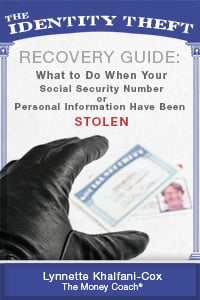
Q: What should I do if someone filed a tax return in my name and has stolen my credit identity?
A: If the person that is your spouse, you need to file a request for what the IRS calls “innocent spouse relief“. Get IRS form 8857 to do this.
If not, you should still notify the IRS and Federal authorities that you have been the victim of fraud and identity theft.
Lock down your credit reports by getting a credit freeze and putting a fraud alert on your credit files with Equifax, Experian and TransUnion.
Credit freezes help you thwart identity theft by preventing a crook from opening credit in your name.
Credit freeze laws, sometimes referred to as “Credit Lock” laws, began in California in 2003.
Now, all 50 states in American, in addition to Washington D.C. and Puerto Rico, have laws permitting residents to lock or shut down access to their credit reports with the credit bureaus.
With a credit freeze, an identity thief can’t apply for credit in your name because you must first provide a PIN (Personal Identification Number) to the credit bureaus in order to “unfreeze” or “thaw” out your credit report and allow access to it.
How to Initiate a Credit Freeze
Surprisingly, relatively few people have actually locked their credit reports.
By some estimates, only a few hundred thousand individuals have requested a credit freeze – this despite the millions of people who have been victimized by identity theft.
 Still, people victimized by identity theft can and do use credit freezes.
Still, people victimized by identity theft can and do use credit freezes.
Additionally, individuals concerned about privacy and unauthorized access to their credit can also initiate a credit freeze.
In fact, many states with credit freeze laws have given residents the right to have a credit freeze free of charge.
In order to obtain a credit freeze, you must provide the credit bureaus with the following:
- a unique PIN or password
- proper identification to verify your identity
- proper information regarding third parties who are authorized to review your credit file








